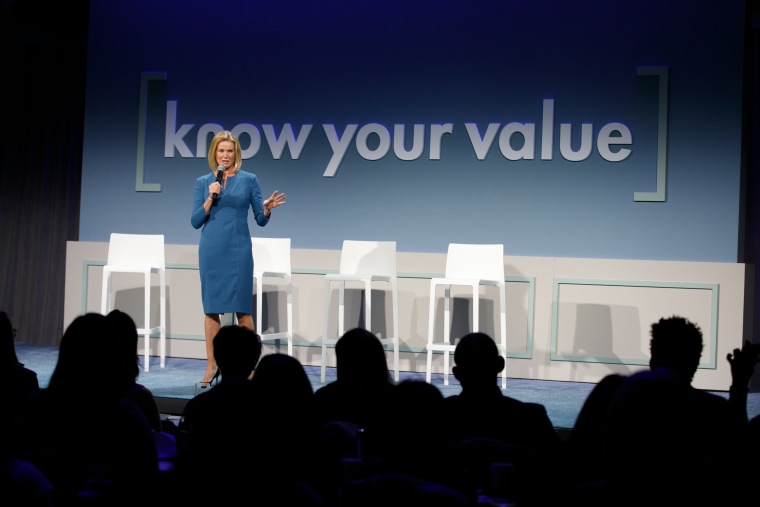Women today are achieving more than ever before. In November, a record number of women were elected to the House. And young women are starting multimillion-dollar businesses in their 20s; millennial women entrepreneurs behind businesses like Bumble and The Skimm have proven success can come early.
So it would make sense to think that young women are also more confident than ever before. But it turns out, they are consumed with self-doubt, according to Katty Kay, who co-authored “The Confidence Code for Girls: Taking Risks, Messing Up, and Becoming Your Amazingly Imperfect, Totally Powerful Self."
In fact, according to a Ypulse poll, in partnership with the “The Confidence Code,” girls’ confidence drops 30 percent between the ages of 8 and 14. The survey also found that more than half of teenage girls feel pressure to be "perfect."
So what’s behind the lack of confidence?
Kay told me at the recent Know Your Value conference in San Francisco that it has to do with the weight of expectations young women face. Whether it’s work, friendships or our carefully filtered social media feeds—Kay found that there's an intrinsic need to make everything look and feel flawless.
Young girls are “putting on themselves the burden of perfection,” said Kay, who presents "BBC World News America." As a result, women are placing a huge amount of pressure on themselves and refrain from taking risks.
“The prospect of failing starts becoming enormously scary,” Kay said. The repercussion is the difficulty it creates for young women to get out of their comfort zones and try something new. It keeps them second guessing themselves when it’s time to speak out or ask for more, like for a raise or promotion.
Kay and her co-author, Claire Shipman, said there are two types of confidence. The first is solid confidence, which is “confidence that comes from overcoming hurdles, and trying stuff that is new and difficult, and learning that you can do things that you didn’t think you could do,” she said.
Alternatively, there’s volatile confidence, which is confidence that “comes from external praise, other people telling you you’re great.” It’s the type of ego boost you get from checking your likes on Instagram or the viewing streak on your Snapchat.
“That can all be taken away. You haven’t actually done something to get that,” she noted.
The problem with having confidence that comes from externalities is that it makes young women feel dependent on other people’s feedback. It has the potential of easily crushing their self-esteem.
But as most of us know, the world is filled with naysayers and critics. The type of confidence women need today one they can “bank on” according to Kay. It turns out, you can build confidence by doing things that purposely get you out of your comfort zone and push you to take risks – even small ones.
“Learn Spanish and realize that you’ll fail, go for that risk assignment at work, try building a relationship with that new client, raise your hand in that meeting to ask that question,” Kay advised.
Part of the issue, Kay explained is that “often our perception of our ability skews lower than our actual ability.”
In other words, young women need to be more honest about their abilities and give themselves more credit. Kay shared that she struggled with this notion in her early career. And if she could give her younger self a piece of advice it would be this: “Everybody fails, it’s no big deal. It’s what being human is. Don’t let that stop you from taking risks.”
Daniela Pierre-Bravo is Know Your Value's millennial contributor. Read more about her here. Follow her on Twitter and Instagram.
